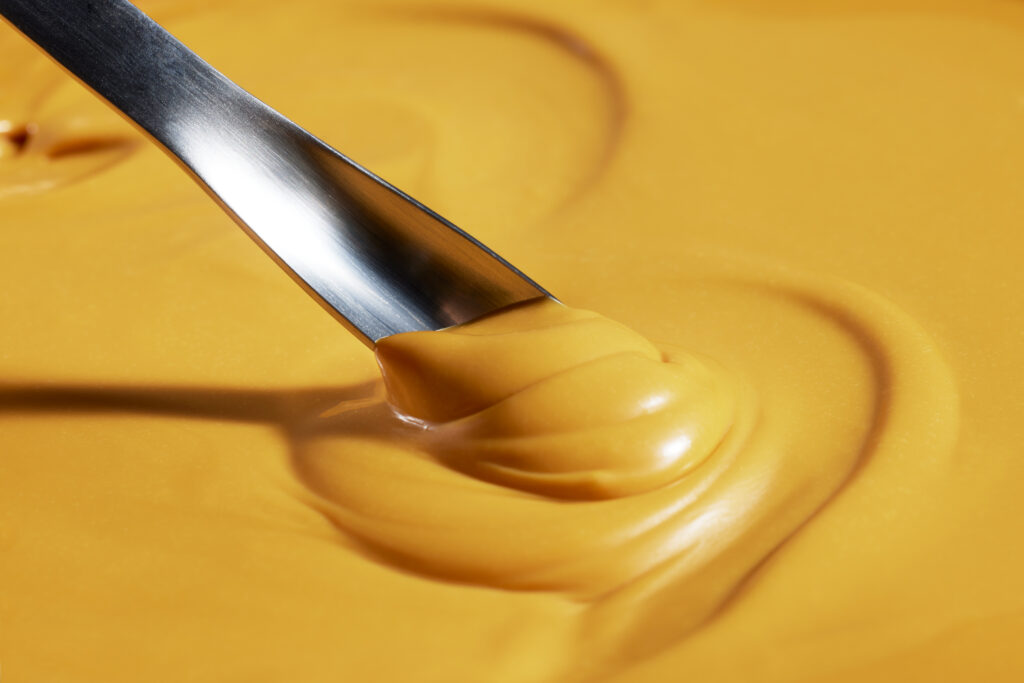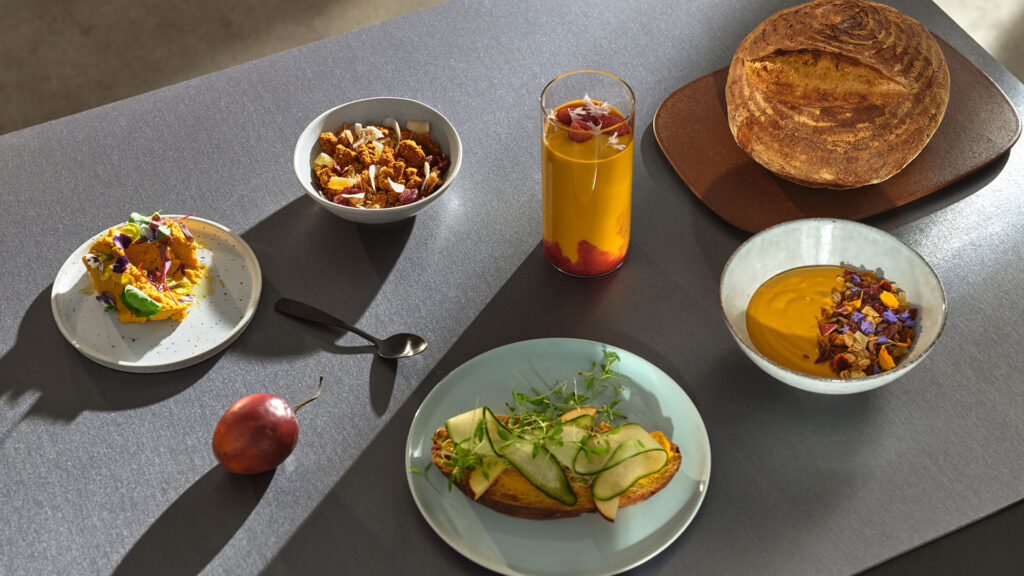5 Mins Read
Finland’s Solar Foods, which makes Solein protein from air, has obtained self-affirmed GRAS status in the US, taking it a step closer to commercialisation in the country.
Solar Foods is inching closer to bringing its Solein protein to market in the US, after earning self-determined Generally Recognized as Safe (GRAS) status.
The Finnish startup’s fermentation-derived ingredient is made by feeding microbes on carbon dioxide, hydrogen and oxygen (instead of sugar). The orange-yellow powder can be used in products from meat, dairy and egg alternatives to pasta and beverages.
Following the GRAS determination, the company now need to register its production facility in Vantaa, Finland – called Factory 01 – with the US Food and Drug Administration (FDA). This would enable it to begin exporting its protein to the US, something it suggests could happen by the end of this year.
”Obtaining self-affirmed GRAS status is the first step towards entering the United States,” said Solar Foods chief commercial officer Juan Benitez-Garcia. “We will shortly be able to launch commercial activities in this significant new market, including marketing and sales operations, and drive our growth.”
The company will also endeavour to notify the FDA of its GRAS determination, with the aim of receiving a “no questions” letter. Its Solein protein is already on the market in Singapore, which approved the ingredient back in 2022.
Why Solar Foods will notify the FDA of its GRAS determination

Since Solein is considered a novel food – much like the precision-fermented heme ingredient in the Impossible Burger, or any cultivated meat – it needs to go through a regulatory testing process before it can be sold as part of food and beverage formulations.
For the self-affirmed GRAS status, Solar Foods conducted large-scale scientific research and published food-safety-related results in peer-reviewed journals. A qualified panel of experts have additionally compiled a statement on Solein’s safety and intended use based on the determined food categories and ingredient concentrations.
The next step – facility registration with the FDA – requires the company to present a food safety plan fulfilling the specific requirements and any other applicable requirements. This would allow it to market Solein in the US. Based on the company’s timeline, we could see products made from Solein protein in the US as early as next year.
After that, the startup will look to obtain the “no questions” letter from the FDA, for which it is required to make a notification with necessary reports on the safety of the product, which would be evaluated by the food safety body.
There are multiple reasons to do this. Self-affirmed GRAS determination doesn’t legally require FDA review, meaning companies aren’t required to disclose safety data publicly, helping maintain confidentiality around proprietary information and trade secrets.
It’s an easier, cheaper and faster way to commercialise. But it does mean companies are making their own safety assessments independently from the FDA (while complying with its requirements). On the contrary, GRAS notification is a much more rigorous process that includes both positive and negative studies on the ingredient. This is viewed as a more transparent process with publicly available data, and breeds both market and consumer confidence.
Outlining this, Solar Foods explained that FDA GRAS notification could “widen the possibilities” for Solein as some potential customers “may require the go-through of this procedure”. It estimates that it will receive the FDA letter by the end of 2026.
A year of milestones for Solar Foods

It has been a big year for Solar Foods, which is planning to go public with a technical listing on the Nasdaq First North Growth Market in Helsinki.
At the start of the year, the Solein protein was part of a Taste the Future chocolate snack bar released by Fazer – a majority shareholder of Solar Foods. And last month, Japanese food conglomerate Ajinomoto unveiled mooncakes and ice cream sandwiches where Solein replaced the dairy, while it won the international Phase 3 category in NASA’s Deep Space Food Challenge.
The startup, which has attracted €43M in equity funding and €30M in debt financing, opened Factory 01 in April, with the daily ability to produce as much protein as a dairy farm with 300 cows. The manufacturing plant was facilitated by €34M in grants from Business Finland, which has pledged a further €76M to support Factory 02 if built in Europe.
Solein is said to have “the lowest carbon footprint compared to all other known protein sources” when produced via renewable energy, with emissions equal to just 1% of those generated by conventional meat, and 20% of plant proteins. The ingredient also has 65-70% protein, 5-8% fat, and up to 15% dietary fibre, while containing iron and vitamin B.
Solar Foods has previously said that regulatory approval in the US will provide “significant benefits” in authorisation processes in other markets – it has filed dossiers in the EU and the UK too.
”The United States will be a significant market for us. GRAS status in the US will contribute to advancing Solein’s expansion into other markets that do not grant specific novel food approvals, such as Japan,” explained Benitez-Garcia.
As Factory 01 churns out Solein and Solar Foods inks partnerships in Singapore and the US, these efforts will determine the prerequisites for earning sales contracts for Factory 02, whose capacity will be 50 to 100 times higher.
Looking forward, the company anticipates the UK greenlight in 2026, and is also considering filing applications for new products developed alongside Solein.



